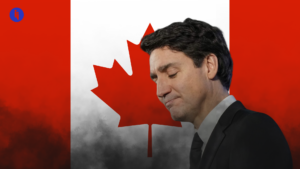Pakistan’s new Army Chief has challenges
Plus: Christmas lights turn off early in Europe, Moldova contends with an energy crunch, and COVID protests spread across China
Hi there Intriguer. Iran and the US face off today in a win-or-go-home World Cup match. But the stakes are bigger than just football for the Iranian footballers who, after refusing to sing the country’s national anthem before their first match against England, have reportedly had their “families threatened with imprisonment and torture” if they continue to protest their government’s actions.
Today’s briefing is a ~5.0 min read:
- 🇵🇰 Top Brass: Pakistan’s Prime Minister appoints a new Army Chief.
- ➕ Plus: Christmas lights turn off early in Europe, Moldova contends with an energy crunch, and COVID protests spread across China.
PS: Our survey closes this Wednesday. So head here to give us your two cents and be in the running to win some prizes!
📰 GLOBAL HEADLINES

Stories: Dong-a Ilbo, Suddeutsche Zeitung, La Prensa, Daily Mirror, Africa News
🤿 DEEP DIVE
Pakistan’s new Army Chief has challenges
In brief:
- The Chief of Army Staff is the most powerful position in Pakistan’s most powerful institution.
- The appointment of a new Chief of Army Staff last week comes amid domestic political challenges that could test the Army’s influence over civilian governance.

Who’s in charge here?
To say Pakistan’s army wields its fair share of power is a bit like saying Tom Cruise had an excellent performance in ‘Mission Impossible: Rogue Nation’ – it’s a major understatement.
- The military manages Pakistan’s roughly 165 nuclear weapons and acts as a kingmaker in Pakistani politics.
In fact, the Chief of Army Staff position has essentially been in charge of Pakistan (via multiple successful coups) for more than half of the 75 years since Pakistan won its independence in 1947.
- Most recently, the current Prime Minister Shehbaz Sharif’s brother, Nawaz, was ousted from power in 1999 by General Pervez Musharraf, who led the country until 2008.
So, when a Prime Minister names a new Army Chief, as Sharif did last Thursday, other countries pay attention.
A former spook in charge
Prime Minister Sharif appointed Syed Asmir Munir, the former Director General of Pakistan’s all-powerful spy agency, the ISI, as the next Chief of Army Staff. Munir’s appointment comes at a tense time for Pakistan.
1. 🌐 Foreign policy
Munir will take over from General Qamar Javed Bajwa, who has directed Pakistan’s foreign policy as Army Chief since 2016.
- Bajwa sought closer ties with both the US and China, and attempted to cool tensions with neighbouring India.
In addition to managing that delicate trio, Munir will also have to:
- Consider expanding relations with the Taliban.
- Restore damaged ties with Saudi Arabia.
- Combat insurgents that routinely threaten Pakistan’s infrastructure.
Though not much is known about Munir’s foreign policy, most analysts expect he’ll maintain Bajwa’s positions.
2. 🏠 Domestic policy
Pakistan’s politics continue to revolve around former Prime Minister Imran Khan:
- Khan has been campaigning around the country and calling for snap elections since a no-confidence vote expelled him from office in April.
- Showcasing his flair for the dramatic, Khan promised to fight until his “last drop of blood” during a rally outside Islamabad on Sunday.
Khan is no fan of the Army. Despite relying on military powerbrokers to facilitate his rise to power in 2018, he’s since accused army officials of conspiring with foreign powers to oust him, and of coordinating with Sharif on an attempted assassination earlier this month.
Khan’s popularity poses a challenge for the military, which is unlikely to accept challenges to its power.
- Bajwa indirectly threatened Khan, reminding him to “keep it in mind that there is a limit to patience.”
According to the analyst (and former Khan advisor) Ibrahim Azeez:
“There are now two likely outcomes: a more overt military takeover, which would set the country back decades, or free and fair elections, which would likely […] result in a win for Khan. The status quo, with Khan free to campaign, is too dangerous and destabilizing for the military’s power.”
What’s next?
Munir’s top priority will be ensuring that Pakistan remains politically stable enough to expand partnerships with foreign powers and unlock much-needed economic support.
But Munir’s rivalry with Imran Khan (who removed Munir from his intelligence post in 2019) may imperil his mission and could undermine the power of Pakistan’s military altogether.
🤝 SPONSORED BY POLICYWARE
World-class public policy education for all
Our partners at Policyware are bringing you deep dives taught by world-leading experts. The online platform is used to deliver a mix of video and live lectures, so you don’t have to take time off from work. Courses include:
- Labor Standards and Human Rights in Global Supply Chains with Kevin Kolben of Rutgers Business School
- International Investment Policy with Lauge N. Skovgaard Poulsen OBE of University College London
Get cutting-edge insights into the latest policy developments, learn about the key actors and strategies needed to drive policy outcomes and join a global policy network.
🔦 REGIONAL SPOTLIGHT
Europe
🇫🇷 France
French Finance Minister Bruno Le Maire admitted his country has relied too much on private consultancy groups such as McKinsey.
- President Macron has also been criticised for overreliance on consultancy firms, most notably for their role in France’s Coronavirus vaccine rollout.
🇲🇩 Moldova
Russia has backtracked on threats to cut gas supplies to Moldova, which would have deprived the country of its most significant energy source.
- EU countries, led by Germany and France, have pledged over €100 million to aid Moldova’s growing energy crisis.
🌍 Regional
The European energy crunch is prompting cities around the continent to scale back their Christmas decorations.
- Displays will be cut short to reduce electricity bills, all while trying to maintain a sense of festive cheer.
🇸🇪 Sweden
The trial of two Swedish brothers accused of spying for Russia has begun, in what many are calling Sweden’s most significant espionage case since the Cold War.
- One of the brothers previously worked within Sweden’s security services and army, but both brothers deny wrongdoing.
🇪🇺 The EU
EU countries are rushing to finalise the proposed price cap on Russian oil shipments ahead of a 5 December deadline.
- Negotiations have stalled since Poland insisted on a lower price ceiling than the European Commission.
🗞 IN OTHER NEWS…
China Covid protests

The news: Protests against President Xi Jinping’s zero-Covid policy spread across China over the weekend.
- Though mostly peaceful, the protests are among the largest displays of civil unrest in a decade.
How it started: The first signs of discontent emerged last Wednesday in Zhengzhou, where Foxconn employees violently clashed with police over compensation and Covid restrictions.
- Then, on Friday, in the Xinjiang city of Urumqi, ten people under Covid lockdown died in a fire after reportedly being locked in their apartments.
Some protesters have more than Covid on their minds. Students at Tsinghua University in Beijing supplemented their Covid protests with calls for ‘democracy and the rule of law.’
- In Shanghai, some even chanted for President Xi to step down.
While small-scale protests in China are more common than many think, demonstrations of this scale and distribution have been rare, particularly in recent years.
- They pose the first significant challenge to Xi Jinping since he won a third term as President in October.
“I’ve lived in China for 30 years, and I’ve never seen such a brazenly open and sustained expression of rage against the PRC govt. WeChat is exploding with protest videos and furious vitriol, and civil disobedience is becoming rampant. This is a serious test of CCP governance.”
That said, the Chinese Communist Party has a long history of managing dissent and has built a world-leading digital and physical domestic security apparatus.
- Reporters have been arrested, and on Monday, Chinese police clamped down on protestors in Shanghai and Beijing.
What’s next?
“There is always the chance that the protests spiral out of control. Still, in spite of how stirring these protests have been, I would be surprised if they continue in any meaningful way given how much work the system has put into to dealing with just these kinds of contingencies”
📊 CHART OF THE WEEK

Xi Jinping’s zero tolerance for Covid is about more than social control – China also has a big immunisation problem.
- As of March, almost half of octogenarians in China had yet to receive a jab, according to the Economist.
- For comparison, more than 95% of Americans over the age of 65 have received at least one dose of the vaccine.
Plus, Western vaccines appear to be more effective. Recipients of China’s Sinovac vaccine require three doses to be as protected as recipients of the BioNTech-Pfizer vaccine.
So whenever Chinese leaders decide to relax Covid restrictions, there’s a real risk it could lead to a sharp increase in infections.









